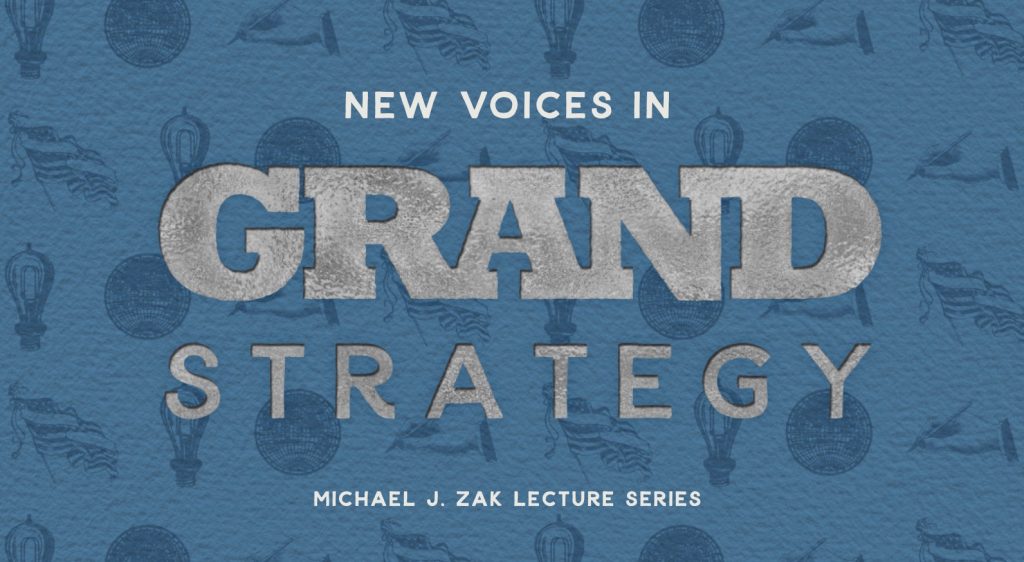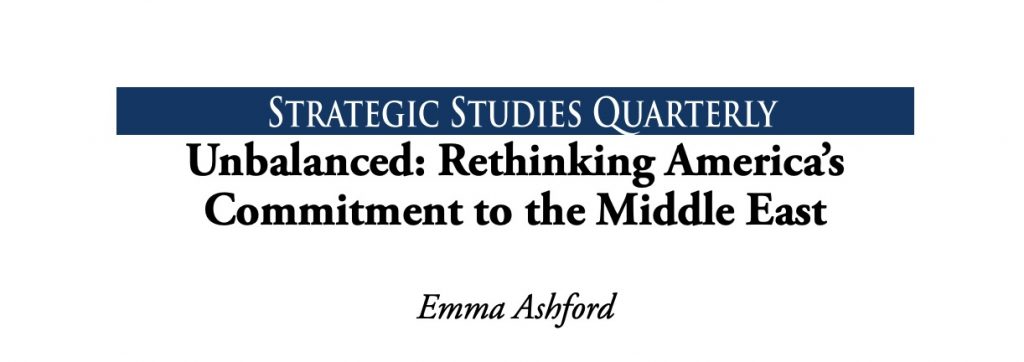Episode
When Should the United States Use Military Force? (31:07)
What principles should guide the decisions to intervene militarily? What factors should weigh most heavily? Cato’s Emma Ashford, CSIS’s Melanie Marlowe, and Brookings’s Tamara Wittes discuss whether the U.S. is too quick to use force in other countries.
Join the conversation across social media with #Sphere.
Transcript
00:00 Caleb O. Brown: If Americans can broadly agree on nothing else, we should be able to agree that much of the bitterness and political tribalism that drives our public discussions is unhealthy for our country. Our objective, the Cato Institute and the Brookings Institution, is to establish a gold standard for the public discussion of policy issues. In this episode, what principles should guide the decision to intervene militarily? What factors should weigh most heavily for politicians? In short, when should the U.S. use military force? Welcome to Sphere.
Our panelists today are Melanie Marlowe of Georgetown University, Tamara Wittes, senior fellow at the Center for Middle East Policy at the Brookings Institution, and Emma Ashford, a research fellow in defense and foreign policy studies at the Cato Institute. Welcome to Sphere. So, I would like to begin this discussion with, in very broad strokes — this is a very deep subject with a lot of ins and outs — begin with your broad vision of when the U.S. military should intervene.
01:47 Melanie Marlowe: The use of force is the most consequential power that a nation has. It can be used for great good. It can be used for bad efforts. The ability of the United States to use force is expansive and enormous, but it is not unlimited. We are sitting here in the shadow of the Iraq War, the intervention in Libya, both what most people consider to be grave and lasting errors, not only in terms of loss of people and treasure, but lost opportunities and perhaps taking us in directions where we did not want to go, including with the loss of legitimacy in the international order.
The use of force shouldn’t be the first option that a nation reaches for, but it should be one of many tools that it does. Diplomacy on a continuous basis, good trade deals, constant negotiations, sometimes sanctions, those are all things that should be used as part of grand strategy.
Grand strategy is the use of all available policy instruments. But force may be on the table. What is clear is that the United States has been doing too many things in too many places for the last 20 or 30 years, and it’s time to have a serious refocus of what our interests are and what our mission should be. In my view, we shouldn’t be fighting large-scale wars for anything but the most vital national security interests, interests of sovereignty, interest of territory, physical security. But there might be other things that are worth sending troops for.
In any case, we need to have a discussion about what those interests are, what the costs will be in terms of the things I just mentioned, what the consequences will be both long and short-term, and what will happen when we leave.
03:35 Tamara Wittes: So, I agree that the use of military force is only one tool in our foreign policy arsenal. And it’s understandable that at the end of 18 years of very intensive American military engagement, especially in Iraq and Afghanistan, that we’re asking this question about military intervention. The fact is that the United States has been operating in a very permissive environment for the last 20, 25 years since the end of the Cold War era.
That doesn’t mean that the problem here is the use of military force. I think we do need to focus on strategy, on mission, on objectives, and then you have to fit the tools that you use to the strategy. When we start talking about it that way, you come to understand that military force can be used in very subtle ways. It can be used symbolically.
It can be used to deter violence rather than to carry out violence. It can be used to prevent conflict. Now, that’s extremely difficult, but it points to the fact that a simple debate about the use of force as to intervene or to not intervene doesn’t begin to cover the range of questions that we need to consider.
We need instead to talk about what we’re trying to accomplish, and whether the use of military force is the right tool to apply.
04:57 Emma Ashford: So, I think we agree on a couple of big things here. I think we agree that the use of military force is just one of the tools in America’s foreign policy toolkit and perhaps it’s a tool that’s been used a little too much in recent years at the expense of some of those other tools, things like diplomacy or economic statecraft.
Where I think we probably disagree is on the situations in which the U.S. should reach for that military toolkit. And in the last 25 years, since the end of the Cold War, in part, as Tamara notes, because we’ve been operating this very permissive security environment, we have seen the U.S. reach to use military force in cases where core national security interests are not at stake. We’ve seen the U.S. reach for force in cases where even the core national security interests of other states that are allies, even that is not at stake.
We’ve seen everything from the use of force for the purposes of nuclear nonproliferation, nominally that’s the reason we went into Iraq, all the way through humanitarian intervention, human rights, counterterrorism, all of these different issues, or even as George W. Bush put it during his term in office, the goal of our foreign policy is nothing less than ending tyranny around the world. And there was an element of that in the Bush administration’s use of military force.
And so what I think we need to have today is a much more focused conversation about why it is that we have come to use military force so much, the negative consequences that that has so often produced, and then we need to talk about, going forward, how do we avoid those mistakes? How do we use force when it is necessary, but without stepping into that realm of random, different reasons that we feel we always must do something around the world?
06:53 Caleb O. Brown: I hear a lot of agreement here, but in terms of helping the audience understand, what are some hard and fast rules that would either tell you yes, this circumstance exists and therefore we must intervene, or yes, this circumstance exists and we must not intervene?
07:12 Emma Ashford: I would say that U.S. national interests, U.S. territorial security, basically the safety of Americans and the American homeland is the primary reason we should consider using force abroad. I tend to think that humanitarian intervention, nuclear nonproliferation, those are not sufficient reasons to use force overseas unless there is some other pressing national interest.
And to that, I would also add that I think even in cases where perhaps it is a little more borderline whether we should use force or not on those questions, policymakers also really need to think both upfront about the costs that that intervention will produce, that’s something we’ve been very bad at thinking about in recent years. We’ve seen interventions that were intended to be very short and quick turn into decades-long quagmires in countries where thousands of American troops have ended up dying.
So, we need to think about the costs up front, but we also need to think about the chances for success. And there have been a number of U.S. interventions in recent years where, by not considering upfront whether we could actually do the thing that we were setting out to do, we may have actually made the situation worse.
08:22 Tamara Wittes: I think actually that point leads us to consider where the military tool fits into the toolbox in achieving our foreign policy objectives, because one clear lesson that has emerged from the interventions in Iraq and Afghanistan over the last 18 years is the need to combine that military tool with diplomacy, with economic statecraft, with transitional justice, with a range of other interventions, if you will, in order for the military tool to be successful, it needs these other components of statecraft as well.
In other words, you can’t fight a counterinsurgency only with the U.S. military. And so, to me, it’s not a question of saying well, we used the military tool and it failed. To me, it’s a question of saying what were we trying to achieve? Did we apply our foreign policy tools in a strategic manner in a way that combined for effect? And I don’t therefore conclude well, that use of force was a failure, we shouldn’t have used force.
That doesn’t mean that we necessarily could have succeeded with an ideal combination of tools of statecraft. But I don’t think that we have demonstrable proof of the failure of the use of force or that the use of force was a bad idea. Yes, interventions can have horrible consequences, but in the case of humanitarian intervention, it is sometimes the case that non-intervention has horrible consequences.
And because we’re the biggest military power in the world, we have to accept responsibility both for acting and the choice not to act.
10:01 Melanie Marlowe: I agree with you that in some of these instances there’s going to be times when even a humanitarian mission could have down the road prosperity consequences for us, or even national security consequences for us.
But I rarely — I don’t know if I ever think that if that’s really the case then that isn’t also the case for other important strong governments that have strong militaries that should be contributing to the cause. I can hardly think of any humanitarian mission that is worth our time and effort that isn’t also worth the time and effort of many other countries.
And so, if we’re doing this, it should not be borne solely by the United States getting into the habit of going to countries where there are legitimate needs for help.
But when they are long-term, in some sense it can create a moral hazard, where there’s a lot of dependent states certain that we will come in. It can set up other conditions, political conditions in those countries. They become very complicated very quickly.
We talked about Libya and we talked about the humanitarian disaster that that could have been. And that if, you know, that there would be chaos because of the dire and terrible — and I don’t mean to make light of the horrible conditions that people live in in these countries. They are unfathomable to us.
But did we align our objectives with the means? Did we talk about the consequences and what was going to happen when we look at how much worse that country is off today? You might disagree. Go ahead.
11:28 Tamara Wittes: You know, I do disagree with you about this, and I’m glad that you raised Libya. To me, it seems clear — a couple of things seem quite clear. And partly this comes from the fact that I work on the Middle East.
11:39 Melanie Marlowe: I know.
11:41 Tamara Wittes: But Muammar Qaddafi was in power for 42 years as a repressive, brutal dictator who, during his reign, essentially destroyed Libyan institutions, Libyan civil society, Libyan social cohesion. When he left power, no matter how that happened, this country was going to face tremendous challenges, number one.
12:03 Melanie Marlowe: Sure, sure.
12:04 Tamara Wittes: So, I don’t know that it’s correct to say that the intervention triggered this domestic conflict.
12:09 Melanie Marlowe: Oh, no. I don’t think that it triggered any of that.
12:12 Tamara Wittes: The second thing is that without military intervention, I think we can say with very high confidence there would have been tremendous massacres.
Qaddafi was saying explicitly that was his intention. He was already preparing to carry those out. And so, yes, Libya has faced a horrific civil war that is still unresolved and has opened it to all kinds of other external interventions that are not helpful to stability in North Africa, they are not helpful to our counterterrorism interests, and so on. But I suspect that Libya was going to have a civil war when Qaddafi left no matter what.
And the one thing I can say with pretty good certainty today is that thousands and thousands of people are alive who otherwise would have been slaughtered. And I do think we have to put that on the table and say that was worth something.
13:05 Melanie Marlowe: And I don’t want to dismiss that, but we didn’t have a national discussion about Libya. You know, there was a lot of time. We could have. And we didn’t talk about what we were doing, and what we were prepared to do, and what the consequences were going to be, and maybe if we should have stayed longer, or if there if there was anything we can do.
And one thing that — I think that talking about Libya and Iraq is — history teaches us a lot about when it comes to war, in my view, the things that we shouldn’t do, but it doesn’t always tell us what we should do in the future, because circumstances do change. No war is — or no conflict is just like any other conflict in the future. And so, I’m not saying that we didn’t save lives, but I’m also not sure that we thought about it is as much as we could have, especially with the long-lasting consequences of what we did would be.
13:58 Emma Ashford: But I mean I do think the main problem with the Libya question, right, is it is all counterfactuals.
14:02 Melanie Marlowe: Right, we don’t know.
14:03 Emma Ashford: We don’t actually know what would have happened if we didn’t go into Libya, but what we can say is we can look at what happened and we can say that we saved so many lives in Benghazi, we saved this number of lives. If you look at the number of Libyans that have been killed since the civil war started, it is far more.
And while I think totting up human lives on either side of the equation is probably a pretty terrible way to do this, it’s indisputable that more Libyans have died in the civil war than we saved in that initial intervention.
If the intervention did indeed precipitate the civil war, then that is a consequence that we really need to think seriously about. And I also want to emphasize Melanie’s point about moral hazard. I think in the context of Libya it is very relevant. If you look at the Arab Spring movements across the Middle East, you do see some evidence that the Libya intervention helped to encourage people in other states to rise up and take up arms against their governments. You see in Syria groups talking about the U.S. will come and help us the way they did in Libya, and then we didn’t go and help them in Syria, and to some extent that strikes me as that’s almost a bigger sin.
We gave these people hope that we would go and help them if they rose up against their tyrannical rulers and then we didn’t. We created moral hazard, and then we weren’t willing to help them. Surely it would be better not to set up that situation in the first place.
15:23 Tamara Wittes: I think to me that’s an argument for trying to develop guidelines and principles. It’s not necessarily an argument for choosing not to act.
15:33 Emma Ashford: I can see how you can make that argument, for sure, that we set up principles for when to intervene. But I also am not clear that people sitting in a state where they don’t necessarily get international news, where they don’t necessarily have unfettered access to the internet, I have no confidence that they would know what America’s criteria for intervening for our use of force are.
I don’t think that the moral hazard problem goes away just because we in Washington have a set of policy guidelines for when we intervene. If it’s just this bad, but you know, no better, no worse.
16:08 Caleb O. Brown: We’re going to go to audience questions here.
16:10 Audience member #1: What role do economic sanctions play in terms of humanitarian crises?
16:17 Emma Ashford: To be honest, the biggest problem with sanctions is that they so rarely work. And there’s a huge body of academic literature and policy work on this. We actually do know when they work. They work when they are multilateral, when they are rare, when they’re aimed at achieving specific policy objectives. They don’t work when they’re unilateral.
16:38 Melanie Marlowe: Right, Cuba.
16:39 Emma Ashford: Yeah, when they’re completely overreaching, when they’re trying to achieve something that a government just doesn’t want to do. Where they can work is when they are narrow, they are targeted. We try to make sure that they impact the government we’re talking about rather than just the people of that country, and we’re trying to achieve some very narrow aim with them, so they’re a useful tool, but they’re not a cure-all.
17:03 Tamara Wittes: I think that’s a really good framework for thinking about sanctions. I would add to it just one element, which is that sanctions are often more successful when they are one component of a broader strategy of coercive diplomacy, and that broader strategy often can include threats of force.
So, which isn’t to say that you know, sanctions end up being a slippery slope to war, but you, as you said, Emma, they don’t work well in isolation. They work as part of a strategy, which means you might have other tools associated with them as well.
17:39 Caleb O. Brown: We have another question right over here.
17:42 Audience member #2: Hi. How would you justify non-intervention and humanitarian crises to a potentially critical American audience who’s becoming more aware of these issues?
17:52 Emma Ashford: So, I often come back with humanitarian intervention to the question of what is possible? And I think we have become very inured to this idea that humanitarian intervention is massive U.S. military intervention for the purposes of sort of overthrowing a government or protecting people.
That’s not what humanitarian intervention actually used to mean. Humanitarian intervention used to be sending the military to help with disaster relief after an earthquake. And I think, you know, that’s the kind of thing that I think the American people are 100% behind and that we should still be doing.
But I do think when it comes to this question of intervening in another state to try and protect, say, the lives of civilians, we need to be honest with the American people that this isn’t just a question about the morality of those people are suffering, you know, we should go help them. It should be a question about well, those people are suffering.
Can we help them? And again, this brings us back to that question of can we actually improve the situation by going in, or will we just make it worse?
19:02 Melanie Marlowe: Americans are very generous people and we do want to help. And it’s interesting, you know, looking at the Vietnam War and the controversy over that, I mean the images that people saw made people at home upset about the war and wanted to end the war.
And when we look at pictures of people suffering in other places, we want to intervene. We think that we can help and we may not understand the scope, or we may not understand the political problems, the logistics, how difficult it might be to actually do anything that will be consequential, even if we might be able to do something in the short term.
19:34 Tamara Wittes: You have to have a theory of the case, right? Why can you make a positive difference is a very important question. It’s easy to intervene in the case of a natural disaster because there’s no motivated actor on the other side who’s determined to cause suffering, right? But that doesn’t mean that those suffering at the hands of a motivated actor are suffering any differently than those who are suffering at the consequences of a hurricane.
So, and in a certain way, if the United States, as an actor with the power to overcome a motivated actor doing tremendous harm to human beings, morally and perhaps we have more responsibility to help those who are being oppressed or brutalized rather than those who are victims of a natural disaster.
So, I think when you’re talking about humanitarian intervention as a moral question, it gets very, very complicated, and American public opinion doesn’t only consider the politics, they don’t only consider the slippery slope, they also consider the morality.
20:39 Emma Ashford: The problem is, for me, the morality question gets you into — well, it’s a slippery slope of a different kind, right? If we can prevent suffering, why don’t we do it everywhere?
20:49 Melanie Marlowe: Should we go to Venezuela?
20:50 Emma Ashford: Right. We don’t do it everywhere because it would end up eventually harming our security if we poured all of our resources into helping other people around the world, we’d end up eventually hurting American security. We wouldn’t even be able to defend our country. We wouldn’t be able to deal with threats like a rising China, or any of these things, so that’s the reason we don’t do it everywhere.
So, then the question is, at some point you have to draw a line. Where is it that we’re going to do it and where are we not? For me, it mostly comes down to effectiveness. Can we do it effectively? And so, for me, that’s the difference between those disaster relief-style humanitarian interventions. You’re right, it’s easy. That’s the point.
We should do it because it’s easy. When we start talking about these situations that are a lot muddier, we don’t know if we’re going to succeed, we don’t know if we are going to kick off a bigger conflict, we don’t know if we’re actually going to be able to protect people or not, that’s when I think intervention is a mistake.
21:43 Caleb O. Brown: We have another question right over here.
21:47 Audience member #3: Hi, Emma and Melanie both alluded to this a little bit. How should the U.S., if they decide that it’s possible to intervene for a humanitarian purpose, how should they deal with the question of mission creep?
21:57 Melanie Marlowe: I will say you should always have a plan B. Nothing is ever going to go according to plan. In my dream world, we would take care of that to some degree on the front end in the way that we authorize wars. So, part of the problem right now is we have an open-ended authorization for war. So, our mission creep has gotten quite large in Afghanistan, and it was even in Iraq.
And so, the question was, could we use that to go to Syria? I saw people on Twitter the other day, could we use this to go to Iran right now? So, it would be nice if we had time, and more importantly, if we had the political will to designate what our interests are and how those might be best accomplished, and if we’re concerned about, you know, that we aren’t sure what we’re going to confront, maybe have a sunset provision or something else, although I’m not usually a fan of those, but in some instances they might be good.
In my view, the most effective check on mission creep is an aware public and politicians that care.
22:57 Emma Ashford: So, I think that’s a really good point that, you know, we need to have more public debates. And I think some of the problems with our interventions in recent years have come not even just because of the public debate, but because policymakers themselves didn’t bother to consider what the aftermath of the intervention would look like. And Iraq is the case everybody rolls out. It’s probably not actually the best case for us to focus on. The Bush administration basically didn’t plan for the day after toppling Saddam Hussein, which is part of why it went so bad.
But I do think this point about war authorizations more broadly, it is helping us to, if not legitimize that at least to undertake interventions in a lot of places in very small ways that the American public not only isn’t debating, but isn’t even really aware of. So, we’re engaged in counterterrorism interventions in countries across Africa. Most of the American people, I myself, was not aware of this until four soldiers were killed in Niger last year.
And when they were killed there, the question was, well what on earth were they doing in Niger?
And so, the fact that this, the 2001 Authorization for the Use of Military Force, was written so broadly, is basically enabling this kind of very small intervention all over the place without any public notice or debate. And I find that very concerning, too, because this isn’t a big Iraq or Libya-style situation where we’re trying to decide if we’re going to explicitly go into somewhere, but this is a case where the process has almost become self-sustaining.
24:27 Tamara Wittes: I think there’s an important correction to make here, which is that it’s not that politicians ignored these issues. It’s that the political risk to them of having a conversation about these issues is such that they’d rather avoid it.
That’s why Congress hasn’t done anything to amend or update these two authorizations to use military force that were passed in the wake of 9/11. But our soldiers in Niger were not there under those authorizations to use military force.
And that’s part of the complication we have to reckon with. They were there under a legislatively authorized program to train and equip a foreign military, the premise of which is let’s help other countries do this counterterrorism work so that we don’t have to do it ourselves. And ironically, that is what resulted in the deaths of those troops. And so, politicians have to grapple with that as well. There are sometimes ways in which they try to solve the problem of mission creep that end up opening new doors to get us enmeshed in things we did not intend.
25:32 Emma Ashford: The point of the Train and Equip legislation was that those soldiers would not be in combat and would not be near the front lines, and then they were in combat. They were absolutely fighting the enemy. And that happens in more places than I think we know. And so it’s not just that these big authorizations to use military force have allowed for mission creep in a lot of places, it’s that the system is basically set up so that there is no independent scrutiny of military intervention, and that is a huge problem. If we want to have a debate about this, if we want to know what the American people thinks about this, if we want to rein it in, it is not clear to me what the political path to do that is.
26:08 Melanie Marlowe: Yeah, I’m not sure that there is one. I think a lot about this, and I don’t think that there will be any sort of different authorization or an authorization rescinded in the near future.
26:18 Caleb O. Brown: All right, we’re going to close up audience Q and A there, but if you all have any final thoughts, let’s hear them.
26:22 Melanie Marlowe: I think this has been a productive discussion, and I wish it’s one that more of our policymakers would have and sit down and think about these things. As I said, American power is great and American leadership is important. We are blessed with the strongest and finest military in the world, and when we think about how we should use them, we do need to think about what our interests are, if our objectives are aligned with the means that we provide, we need to consider the costs in the short and the near term, and we need to think about the consequences of action and inaction.
We need to behave and ask them to serve in a way that is honorable to them and truly necessary for us.
27:05 Emma Ashford: I think American interventions in recent years have simply become far too much a part of our foreign policy. They have become the tool of first resort, the use of the military, rather than the tool of last resort. So, we need to think about why that’s the case. We need to think about whether we really have an interest in always being the world’s policemen and being out there trying to solve every problem in the world, or whether American interests would actually be served by taking less of an active hand.
And obviously that becomes a difficult conversation when we talk about humanitarian intervention. There are moral dimensions. It becomes a difficult question when we talk about security interests which start, you know, nuclear nonproliferation, is that a security interest? Is that an interest that the U.S. doesn’t really have?
So, in every situation this is going to be a different discussion. It is going to be a different debate. But for me at least, I think it’s indisputable that America has simply become too reliant on using military force overseas to try and achieve its aims, and, perhaps worst of all, to try and achieve something, we’re just not really sure what our aims even are.
And so I think we need to be clearer about what our aims are, we need to be clearer about when we’re willing to use the military, and when we’re willing to accept the consequences, as you put it earlier, of not using the military.
28:29 Tamara Wittes: I think we’re in a transitional moment in global politics. We are now at the end of a period where the United States had, in essence, unchallenged predominance of power in the world, and at the end of a period in which the international institutions that were setup by the United States and others were functioning in a way that enabled broader international consensus on a lot of issues related to global security.
So, entering into a different period, a period in which the United States is challenged more, a more competitive era in international politics, I think compels us to think harder about what it is we are trying to achieve and what we are willing to invest in achieving it. I’m not surprised that Americans broadly, American politicians and officials, specifically tend to think of military force when they think about American power. It’s without a doubt the most concrete and the most inescapable component of American power.
But I would argue that we express our power and we wield our power in a variety of ways, and that just as the military tool can be a first resort, it can also be a real mistake to exclude the military tool from your toolkit when you’re trying to do difficult things in the world. And it would also be a mistake to assume that the military tool is the one that, more than any other, has the potential to cause harm.
So, I agree with both of you that we need more public conversation, that we need to be more explicit and thoughtful about our aims, but I don’t think that primarily that relates to the use of force. I think it relates to America’s role in the world.
30:26 Caleb O. Brown: The task of Sphere is to establish a gold standard for the public discussion of policy issues. Thank you for joining us for this episode. Talk to you again next time.








